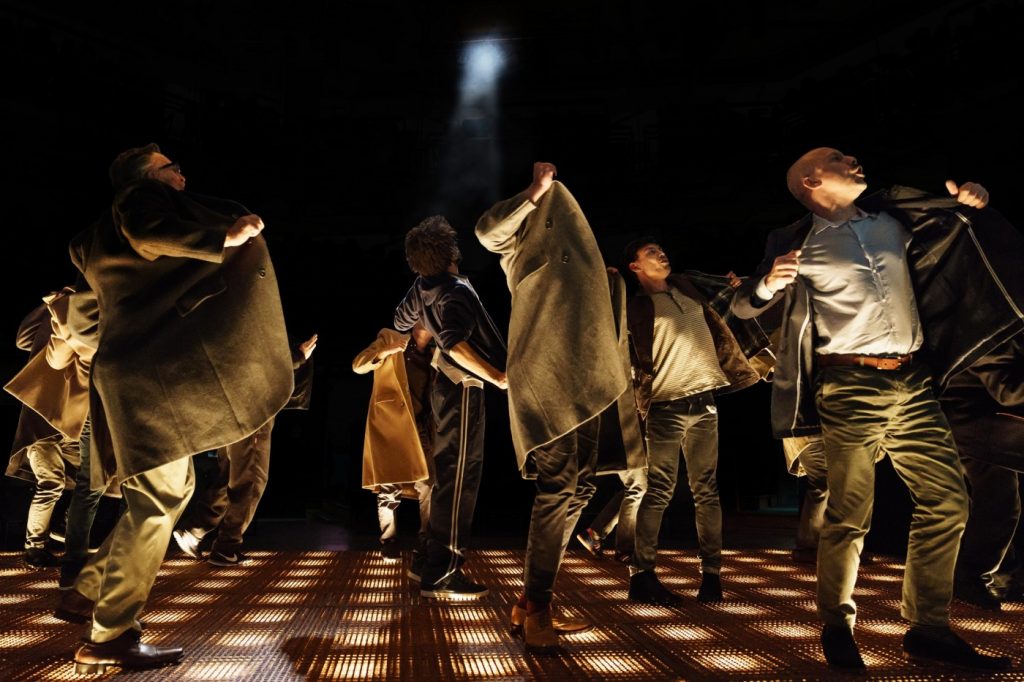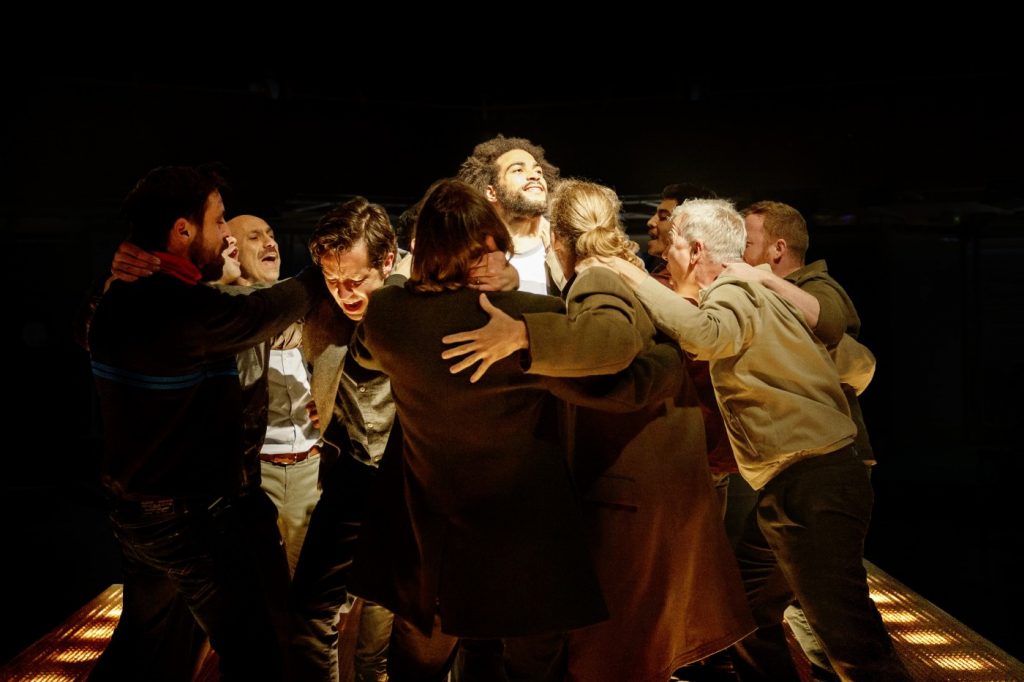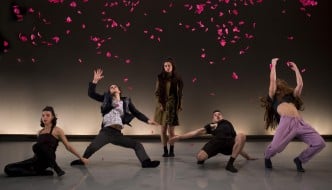
The cast of Fatherland. Photo credit: Manuel Harlan
From its very first scenes, it is clear that Fatherland is not going to be your average piece of verbatim theatre. On stage are actors playing the show’s three creators—Frantic Assembly’s Scott Graham, Karl Hyde of Underworld, and playwright Simon Stephens—in a reconstruction of the interviews that were intended to form the backbone and flesh of the piece. As the creators shine their spotlight on a series of men from their respective hometowns, picking their brains on fatherhood in its many meaning, we, the audience, keep the creators under close scrutiny.
“What is your earlier memory of your father?” The interviewees hailing from Stockport, Corby and Kidderminster constantly pass the baton of answering in a fluid, organic movement of narrative. This flitting between characters is reminiscent of video: stopping, starting, fast-forwarding, edited so that content flows thematically. What the content reveals about masculinity is unsurprising, but still poignant. From MOTD to pub culture to cigars, most of the men’s recollections start with the sentimental and nostalgic, but not yet touching on the really personal. The conversations gradually give way to more openness. One character talks of his mental health problems being hard to accept for his father. Another, of barely saying “I love you”. There’s a certain irony in that it takes such an interview for the men themselves to open up, and in that the creators themselves are similarly reluctant to talk when the tables turn on them.
But it is perhaps the class divides evident in this piece that I find most compelling. Through including themselves as characters, the creators open themselves up to criticism, all three having fled their working class roots to pursue more middle class artistic ambitions. One character drives right to the heart of this, interrogating their choice of verbatim theatre as a form. “Why don’t you just make it up?” he asks. The creators respond that they’re going for a “more truthful quality”. “Isn’t that just lying?”. No, it’s editing. They’re doing it “thematically”. ”What does that mean?” the interviewee asks, piqued. The creators’ distance from the towns that fathered them exerts an increasing and telling tension on their exchanges.

Photo credit: Manuel Harlan
The production’s musical interludes start promisingly. In a boozily rhythmic number, with dimmed lights and smoke evoking a hazy bar, the men don jackets and shuffle smoothly on the revolving stage. Voices boom and ring out, moving into a football chant-like chorus, seeming to tune into a musical frequency of masculinity. This, I learn after leaving the show, has been carefully constructed by Hyde, who sampled the sounds of keys, cars, footballs and other paraphernalia many us of subconsciously connect with fathers. The music and movements are innovative enough to win me over for a while.
Soon, however, the shouting seems to get a bit old: the pieces seem to blur into one, and I’m not convinced it’s adding much of value to the piece. It also crosses my mind to wonder what the interviewees would think of their words being mashed up into what at times seems to have become a bit of a crude caricature of ‘the bloke’. As, late in the piece, the music climbs towards a raucous climax, the actors exit through doors around the circular theatre, bang on the walls from outside, their chants reverberating through the building. It’s hard to feel excited by this after 90 minutes of it, and I find myself cringing. It seems to all have just got a bit silly.
Nonetheless, Fatherland is a thoughtfully constructed meta-exploration of fatherhood and masculinity that takes verbatim theatre to exciting new places. They just probably should have been a bit more selective with the songs.
Filed under: Theatre & Dance
Tagged with: Corby, dance, Fatherland, fathers, Karl Hyde, Kidderminster, Manchester International Festival, masculinity, MIF17, musical theatre, Scott Graham, Simon Stephens, Stockport, theatre, verbatim theatre



Comments